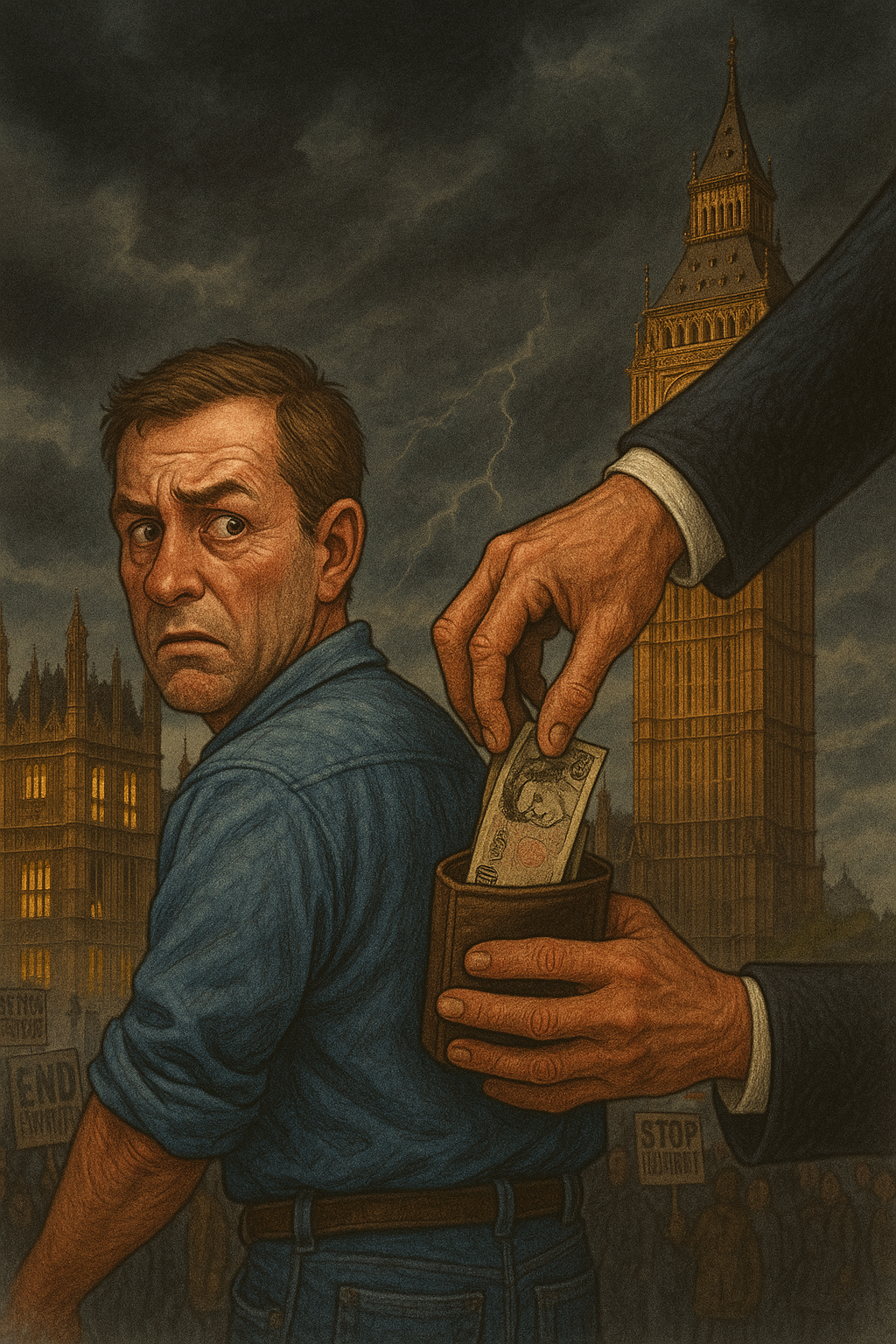Donald Trump has ended free trade, Reform UK want to nationalise steel and suddenly it appears that amongst right-wing challengers: liberalism is dead. Long the leading ideology in the West’s right-of-centre parties, the ideas of free trade, free movement and tolerance are being supplanted by an energetic, populist right.
In 2024 Donald Trump won a historic election victory in the United States. Earlier that year, Reform UK stormed into Westminster with five seats and 14% of the popular vote, quickly establishing themselves as a loud (if somewhat unstable) agitator on Britain’s right. Similar trends in Europe have seen the rapid emergence of Germany’s Alternative für Deutschland (AfD), France’s Rassemblement National (RN), and Italy’s Fratelli d’Italia (FdI). These are not the only cases and together they represent a broad trend within right-wing politics in liberal democracies. One that is distinctly illiberal.
Though retaining a strong stance on issues such as immigration, and increasingly Islam in particular, today’s ‘new right’ have made efforts to display their liberal credentials. Generally speaking, these parties have been in favour of tax cuts, privatisation, and deregulation in continuity with the liberalism of the 1980s. Reform have taken a stand against Labour’s inheritance tax changes; the AfD have called for a greater use of referendums and federalism; and Donald Trump even granted an unconditional pardon to Silk Road manager Ross Ulbricht. In the face of centre-right and conservative parties that have raised taxes, overseen a decline in public services, and often been actively hostile to civil liberties – the populist radical right certainly has a liberal appeal.
The first point of contention is immigration. It is from the break-off point on immigration that these parties and their supporters stray further from liberalism and closer to a more muscular national conservatism.
American political theorist Patrick Deneen wrote in ‘Why Liberalism Failed’ that liberalism’s most “fundamental right” was “the right to leave the place of one’s birth”. Just as liberals support the free trade of goods, they too support the free movement of people, the actors in any economic system. Since the 2015 EU migration crisis, and similar perceived mass migration in the USA, the right’s approach to immigration has shifted significantly. From Ronald Reagan’s ‘anyone can be an American’ to Trump’s promise of “mass deportations”; from Merkel’s ‘no alternative’ other than aiding asylum seekers, to ‘Ausländer raus’ (foreigners out) ringing around festivals and streets across Germany.
These parties speak of crime, but where others call for criminal reform, they call for deportation. They speak of culture, but where others call for dialogue, they call for separation. They speak of privatisation, but where others would reform the welfare state, they will not touch it, though only for their chosen people. The latter of these policies, what is termed ‘welfare chauvinism’, can be seen in the ostensibly free-market Farage’s appeals to concerns around the NHS and housing in relation to migrant communities. The belief is that high taxes and big government are fine, so long as the border is closed.
Though Trump and Viktor Orbán spearheaded such politics in the US and Hungary, respectively, the end of free movement for people did not initially go much further. Market economies were preserved, free trade and globalisation remained the norm, and the liberal order appeared shaky, but intact. Since his re-election in 2024, however, Donald Trump has embarked on a mission to put ‘America First’ by unleashing a wave of tariffs upon the world, increasing demand for American manufacturers and raising the cost of living for millions of Americans.
Reform UK have sided with the Labour Party in an astonishing step for the pretender to the throne of British right-wing politics. Leaving behind their small-state mask, Reform has joined the call to nationalise British Steel, rather than allow the British government to progress past steel manufacturing – an industry we are not particularly competitive in. That is not to say that there is no pushback against the emerging economic nationalism of the right.
AfD’s leader Alice Weidel described Trump’s tariffs as “poison for free trade”; in slightly less certain terms, Farage said the US President was doing “too much too soon”. However, the essential conflict between liberalism and nationalism is where one places their priorities. In liberalism, the individual is the essential social, economic, and cultural unit; whilst to a nationalist, it is the ‘nation’. A collection of people in a given area, under a state.
In the 20th century’s nationalist era, Friedrich Hayek remained a cosmopolitan, liberal internationalist. The Objectivist may view nationalism as Ayn Rand did racism, as a “form of collectivism”. Economist Murray Rothbard described nationalism as a “means of making natural patriotism work to the State’s advantage”. Today’s nationalism, just as it always has, possesses economic, social, cultural, and human consequences, and as it seeks to supplant liberalism from its place on the right, liberals must be able to shout back.















